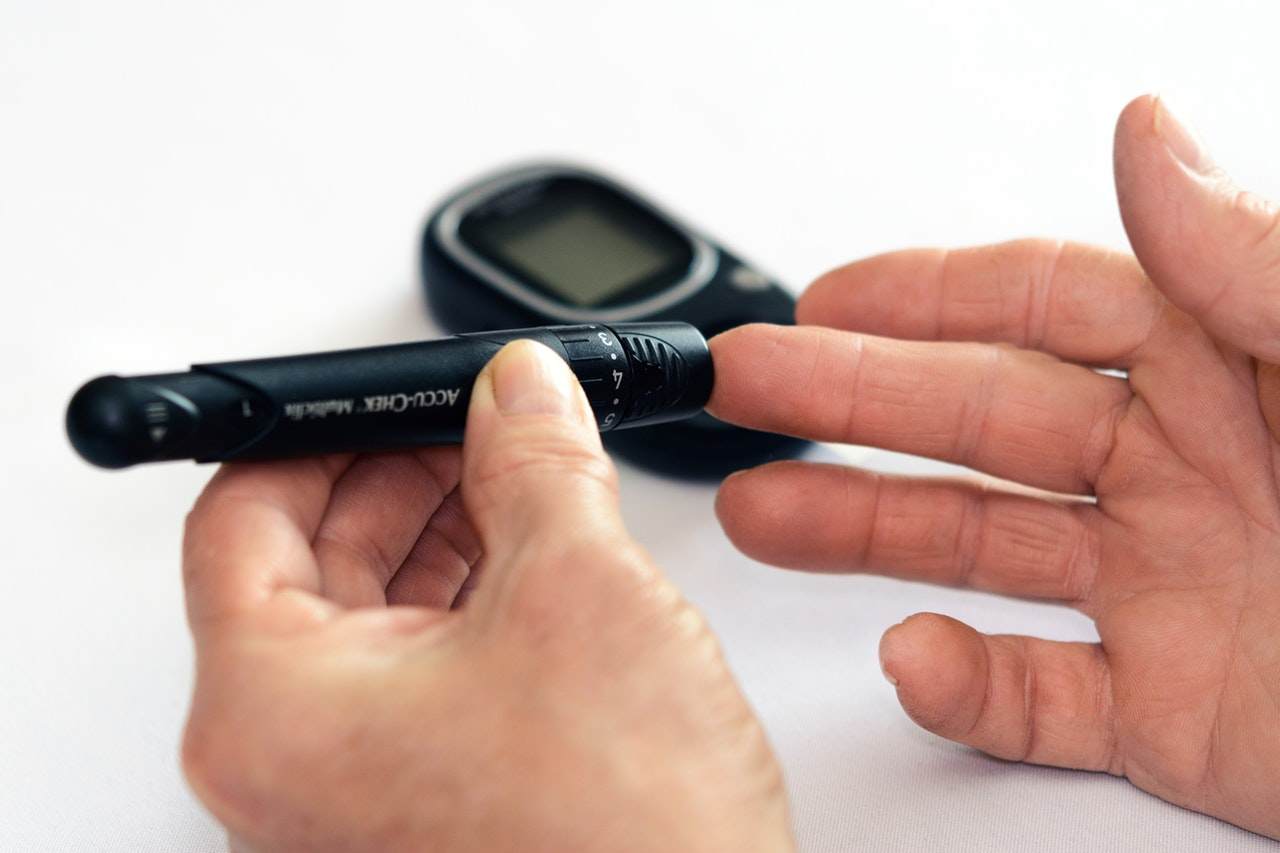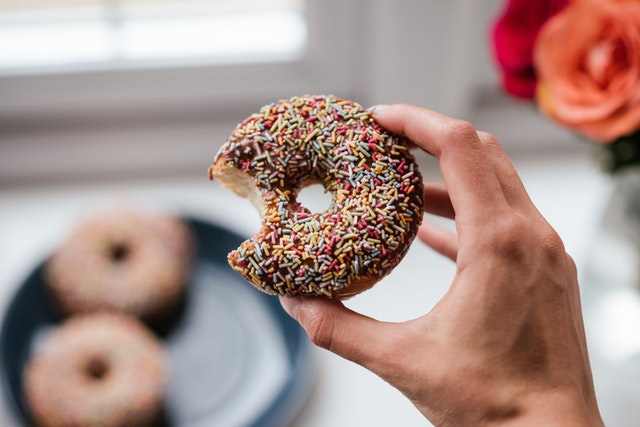Why do you get tired after eating?
Why am I so tired after I eat? It is very normal to feel tired after eating. Many people do not however understand the reason behind getting tired after eating. At times, you feel very tired and sleepy immediately after taking your meals. In most cases, the feeling sneaks in when you are full and maybe relaxing. You realize that you can barely do much after eating since your body feels worked up.
If anything, the body has a task of fighting the urge to sleep. This feeling after meals could mess up your day’s programs and studying habits for students. Usually, it is a feeling that is annoying especially when you have some work to attend to. Some of the reasons as to why you feel extremely tired after your meals are discussed below.
1. Eating foods rich in refined carbohydrates and sugar
If you observe keenly, you will realize that how tired you feel after eating varies with the types of foods you consume. Carbohydrates and foods with high sugar level are mostly associated with getting tired after eating. Carbohydrates result to high sugar levels which after sometime fall low and hence, you experience low energy levels.
Clearly, regulation of blood sugar in this case determines how tired one feels. You therefore ought to eliminate excessive carbohydrates in your meals and focus on eating fiber, and proteins including legumes, nuts and whole grains. When carbs are broken down, sugars are released and absorbed to the blood. When in excess, these sugars cause imbalance in blood sugar levels which translates to fatigue.
2. Irregular feeding intervals.

Time interval between meals is one factor that many people ignore. Surprisingly, this could be the simple reason you feel terribly tired after meals. If one day you have four meals and then two meals on another day, it means that the period between taking of your meals changes.
It is very dangerous as it makes it difficult for the body to regulate the sugar levels and hence a result of energy crashes. If you maintain a regular time interval between your meals, you will avoid energy crashes and rarely will you feel sleepy after eating.
It is advisable to focus on small but regular meals. It is advisable that you never skip a meal. Take all your meals so that the body receives steady energy over time. It is better to take reasonable amounts of food at intervals rather than take a single huge meal that over works your body leaving you very tired.
3. Acidity and orexin
When orexin is suppressed, you will feel very tired. Orexin is a neuropeptide responsible for regulating wakefulness. Orexin is affected by changes in the pH. of the blood. This could occur when the blood acidity level drops leaving it more alkaline.
You might be a person who likes chewing. However, you might avoid the chewing habit if you are to overcome feeling tired after eating. Chewing triggers release of HCL in the stomach. The result is that some acidity id drawn from the blood leaving it alkaline to a greater level.
Such changes in pH will therefore result to orexin being suppressed and as so you end feeling tired. It is therefore prudent that you avoid anything that will interfere with the blood pH. levels.
4. Your diet
Your body responds differently depending on the foods you take. Foods that take long to be digested are some of the foods that leave you feeling very tired and sleepy. For instance, proteins such as turkey are likely to leave you feeling extremely tired. Carbohydrates in your meal will influence the blood sugar levels in your body as discussed above.
There is need to research on the body response towards some types of foods to avoid feeling tired unnecessarily. To be on the safe side, always maintain a balanced diet. Further explained, a balanced diet constitutes of all necessary nutrients. Carbohydrates, proteins, vitamins, mineral salts and water are what make up a complete and balanced diet.
A balanced diet will control how your body works at the time of digestion and absorption. For instance, when your meal constitutes carbohydrates and proteins, you stand high chances of avoiding fatigue after your meals.
The reason behind this is because, proteins take long to be digested and absorbed into the bloodstream. As such, they help slow down digestion of carbs and hence a reduced risk of sudden increased levels of sugars which are associated to fatigue
5. Change of sleeping pattern
Sometimes, the reason you feel sleepy after eating is not actually because there is a mistake in your choice of food. If at all you did not sleep for your usual number of hours, you tend to feel sleepy at the time you are done eating.
The body tends to recover any sleeping time lost and therefore, it finds it more convenient when you are full and relaxing. At that point, the body feels tired and you have no option but rest. You should therefore mind you sleeping patterns since any interference will mean a sacrifice so as to rest during your working hours.
6. Lack of exercise

Research shows that, staying idle leaves the body feeling fatigued. On a day that you are not involved in any physical activity, you realize that you are very tired after meal. Such fatigue is because the body functions normally and stays alert only with physical exercise.
In that regard therefore, exercise does not necessarily mean going to the field and doing press ups, rather, it requires that you spend your time doing something that at least uses up your energy.
Excess and unused energy in your body is a major reason you feel tired after eating. Research shows that lazy people are more likely to feel tired after eating. This is because most of them energy is unused and all it does to them is make them feel exhausted.
7. Reactive hypoglycemia
One of the characteristics of hypoglycemia is excess production of insulin. Too much insulin in the body is associated with low glucose levels in the blood a few hours after eating. Low levels of glucose or sugars in the blood cause difficulty in normal functioning of the body. This explains the reason for feeling tired after your meals.
8. Probably you are diabetic
If you feel tired every time you have your meals, you should not assume the feeling because sometimes, it is diabetes that contributes to the feeling. Diabetes is associated with high sugar levels in the blood and this is what makes you feel tired after eating. Some sugars are very difficult to breakdown and this is what causes the body to feel exhausted.
Similarly, you need to undergo necessary tests in order to determine whether it is high levels of sugar in the blood, in this case diabetes, which is making you tired after eating. It is only when the diabetes test is negative that you can conclude any of the other probable reasons for why you feel tired after eating.
9. You are eating too much
Eating too much strains your body. This can be explained by the amount of blood required for transportation of such large amounts of metabolized food. In addition, eating too much food requires the body to fasten its digestion processes and this strain leaves you feeling tired.
For example, eating too much bread causes your body to release too much insulin which affects not only the blood sugar levels but also the release of tryptophan in the brain which is associated with serotonin. Serotonin causes drowsiness, tiredness and general fatigue.
Therefore, it might be you are consuming more than your body can manage. It is important to look not only on what your diet constitutes of but also mind the volume of the diet.
Can eating too much make you tired?
There are days you feel very hungry and therefore you decide to take large amounts of food. On such days, you end up feeling very tired. Tiredness often leads to a sleepy feeling. The following are some of the reasons eating too much gets you very tired.
- When you take high quantities of foods, it means that you are consuming high fat content, high carb quantities or high contents of sugar. High quantities of each of the above have resulting side effects some of which are related to getting tired and feeling sleepy.
- There is a neural response immediately high quantity of fats, carbohydrates and sugars get to the small intestine. This is the response which requires the body to concentrate on digesting food rather than consuming more and more amounts of food.
- High amounts of food result to increased production of insulin. Insulin usually increases production of serotonin and melatonin. Once these chemicals flood the brain, you get a drowsy feeling. Feeling tired therefore is an obvious result of over eating. It is therefore advisable to eat small amounts of food or rather just enough food. Excessive eating is no way to avoid feeling tired after eating.
- Eating too much overburdens the body in its digestion and absorption duties. When food is being digested, most of the blood goes to the gut and the stomach. The reason for this is that, the blood is responsible for transportation and absorption of the newly metabolized food. The more food you eat, the more the blood required to be released to the stomach and the gut. This means lesser blood is left for the rest of the body to carry out other roles.
- Too much food therefore leaves the body over worked. This explains why eating too much gets you very tired. Let us study how your body behaves when you eat too much bread. There is sugar flooding in your bloodstream once the carbs in bread undergo digestion. This results to release of insulin whose effect is driving excess sugars out of the blood.
- Amino acids that are in circulation in your body are also affected by insulin release. The end result is that more tryptophan is accesses the brain. An increase in tryptophan in the brain leads to increased production of serotonin. This is the component that makes you exhausted and fatigued after eating large amounts of carbs such as bread.
Does diabetes make you tired after eating?

If you feel tired after eating, it may be because you have diabetes. If you feel tired and sleepy after taking your meals, you will need to visit your doctor to be sure that it is not diabetes. As mentioned earlier, unstable sugar levels are a main cause of feeling tired. If you are diabetic, you will often feel tired and sleep due to high sugar levels in the blood. There are two forms of diabetes as discussed below:
- Diabetes is referred to as an autoimmune disease. Beta cells in the pancreas, known for insulin production, are considered to be destructive by the body. The body therefore destroys them. The body would produce an extremely small amount of insulin or no insulin at all in absence of beta cells.
This type of diabetes therefore requires that you acquire external insulin say by getting insulin injections from your doctor. This is crucial for life sustainability. The reason people with diabetes feel tired after eating is because, lack of adequate insulin elevates levels of blood glucose. The result of this elevation is symptoms such as feeling extremely tired.
- The second form of diabetes occurs when the body’s production and use of insulin is improper. This type of diabetes is in most cases associated with people who feed on excess fats. These fats usually interfere with how the body uses up insulin. The end result is symptoms such as getting tired after eating.
Poor control of blood glucose for people with this type of diabetes leads to fatigue after taking a meal. For this type of diabetes, feeling tired mostly occurs after feeding on very sugary foods and carbohydrates. It is therefore important to note that, should feeding on sugary foods and simple carbs lead to feeling tired, then there is need to seek medical advice.
Margret says that, “I can tell if my sugars are high in the morning, because ‘groggy’ doesn’t begin to describe it. ‘Drugged’ is how it feels”. The reason diabetes could be why you are feeling tired is that; when blood glucose is high, your blood is found to be ‘sludgy’ and this interferes with circulation of oxygen and other nutrients.
When the body cells are not functioning well, you feel tired since your body is straining.
Into the bargain, fatigue for people with diabetes could be caused by inflammation of blood cells. It is sugar that causes the blood cells to be inflamed. This inflammation causes monocytes, which are immune cells to get to the brain. The result is that diabetic people feel very tired.
Does eating too much sugar make you tired?

Among the reasons you feel tired after eating could be the amounts of sugar you consume. Feeling tired is a hangover of feeding on too much sugar. Most people believe that feeding on carbs or sugar is a perfect way to provide their bodies with energy.
The bad news is that, you only feel energized due to the increased metabolism in the body are the sugars are broken down but at the end you feel very tired and sleepy.
- Writing for Wired, Jonah Lehrer explained that; orexin, known for keeping you awake is interfered with when you eat foods that have sugar in them. Orexin is a chemical contained in the brain and its levels in the brain are lowered when you consume sugar. Sugars such as fructose are not usually digested like normal food and that complicates the process of digestion.
Once you eat sugar or foods that have been processed, several things happen to your body. The sugars, already refined, enter your blood stream. This therefore causes the levels of sugar in your blood to rise. This puts pressure on the pancreas so that it releases insulin.
Usually, insulin aids in getting sugar into the body cells. It also helps in rapid use of the sugar and this causes the sugar in the blood to crash. At this point, your body experiences hypoglycemia or rather the state when the sugars in the body are low. This kind of imbalance causes a strain on the body and the result is that you feel fatigued.
It is important to note that, sugars do not have to be consumed directly. You may be consuming excess sugars without realizing. You may be feeling very tired after eating yet you took no sugary foods in your diet.
In case you often feel tired after eating, you need to examine your diet. It could be you are feeding on too much carbohydrate. Carbs are usually broken down to sugars which when in excess will react with the body as explained above leaving you tired.
Carbohydrates are a source of energy to your body. However, you need to understand how they function. Some carbs provide a rush of energy over a short time. The body usually has insulin released so as to assist in blood sugar regulation.
Feeling tired after eating comes in when carbs already in your muscle are swiftly removed. There is an immediate drop in levels of sugar in blood, what is referred to as hypoglycemia. This is the condition associated with changes in blood sugar as discussed above.
On a general scale, carbs that take very long to digest are associated with a burst in releasing energy and therefore they require a fast release of insulin and eventually the feeling of being extremely tired. You therefore need to ensure slow release of insulin in your body by feeding on carbs that take a short digestion and absorption time.
What you need to avoid any time you take carbs or sugars is a spike in insulin and the resulting low blood sugar. This helps you get rid of the feeling of fatigue after eating. Including proteins in your diet is one of the ways of limiting fatigue after feeding on sugars or carbs. This is because, proteins take a longer time to digest and this helps regulate the release of insulin.
We can also explain the fatigue after eating sugars as being a result of sugar sensitivity. Low beta-endorphin and serotonin are associated with increased levels of sugar in the blood. Our major concern here is on the low levels of serotonin, a chemical in the brain. The effects of low serotonin levels in the brain include feeling tired.
Tired after eating during pregnancy
During the pregnancy, your body goes through many hormanal changes. For pregnant women, drowsiness and fatigue are a natural symptom. Be sure to talk to your doctor about the appropriate examination.

